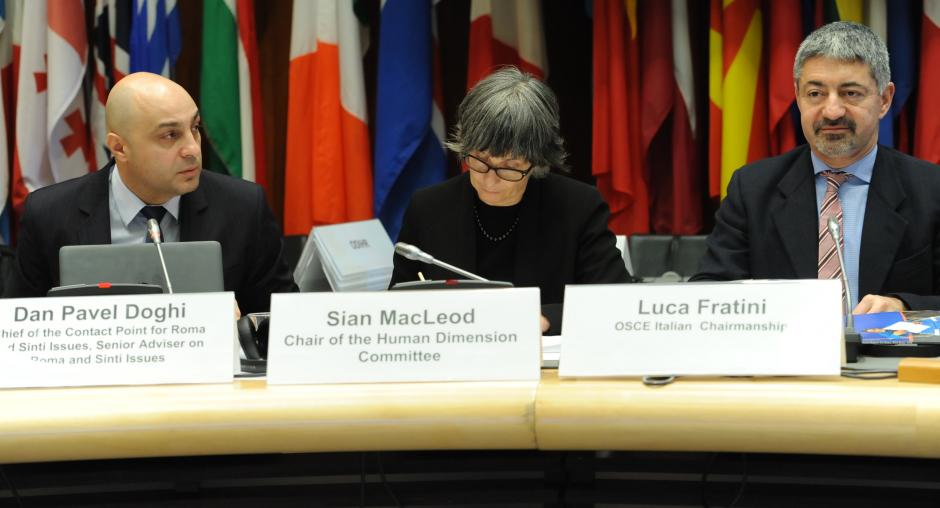Progress and challenges in implementing OSCE Action Plan on Roma and Sinti focus of ODIHR report presented in Vienna

OSCE participating States should act more decisively to enhance the participation of Roma and Sinti in public and political life, participants said at an event in Vienna on 11 December 2018. The event was organized to present a report by the OSCE Office for Democratic Institutions and Human Rights (ODIHR) assessing the status of implementation of the Action Plan on Improving the Situation of Roma and Sinti within the OSCE Area.
ODIHR presented its 2018 Status Report For Roma, with Roma, the third since the Action Plan’s adoption in 2003, to representatives of OSCE participating States and Roma civil society. The discussion that followed focused on the progress made by participating States in implementing commitments in the area of public and political participation of Roma and Sinti, and on the remaining challenges.
The meeting was organized by ODIHR in co-operation with the OSCE’s Italian Chairmanship.
Introducing the report’s main findings and recommendations, Dan Pavel Doghi, Chief of ODIHR Contact Point for Roma and Sinti Issues, noted with concern that “Roma and Sinti continue to be significantly under-represented in public and political life in the OSCE area”. He strongly urged participating States to “scale up efforts and pro-actively promote effective participation of Roma and Sinti as voters and candidates in elections, as well as in all policy and decision-making processes affecting them.”
Speaking on behalf of the Chairmanship, Ambassador Luca Fratini highlighted the essential role of public and political participation as a prerequisite for improving the situation of Roma and Sinti.
“Today’s event gives us all, participating States and civil society, the opportunity to reflect on progress so far, remaining challenges and most importantly, areas for follow-up to enhance the public and political participation of Roma and Sinti,” Fratini said. “Despite some progress reported, 15 years after the adoption of the OSCE Action Plan, we need to intensify efforts to ensure equal access and opportunities for the participation of Roma and Sinti and work towards their full social inclusion.”
Describing ways to achieve meaningful participation, Carmen Gheorghe, President of the E-Romnja association promoting Roma women’s rights, said: “Broad-based inclusive politics has to be promoted in all societies to address under-representation and exclusion. Politicians must publicly condemn all manifestations of racism, discrimination and violence against Roma and Sinti, and they should also include more Roma and Sinti, both men and women, as party members and candidates.”
